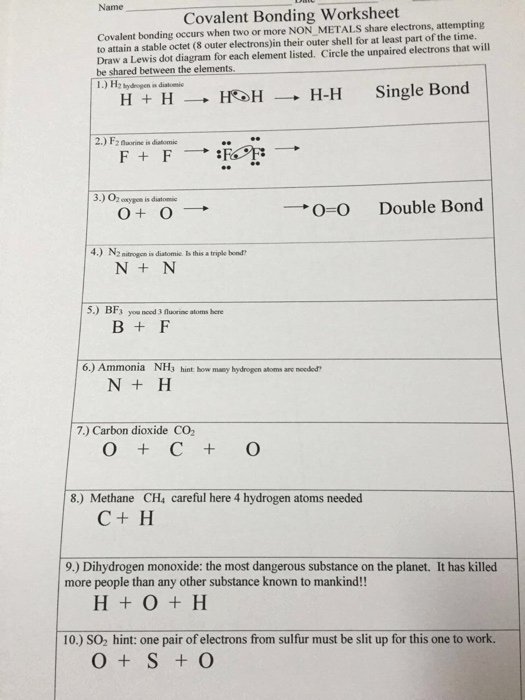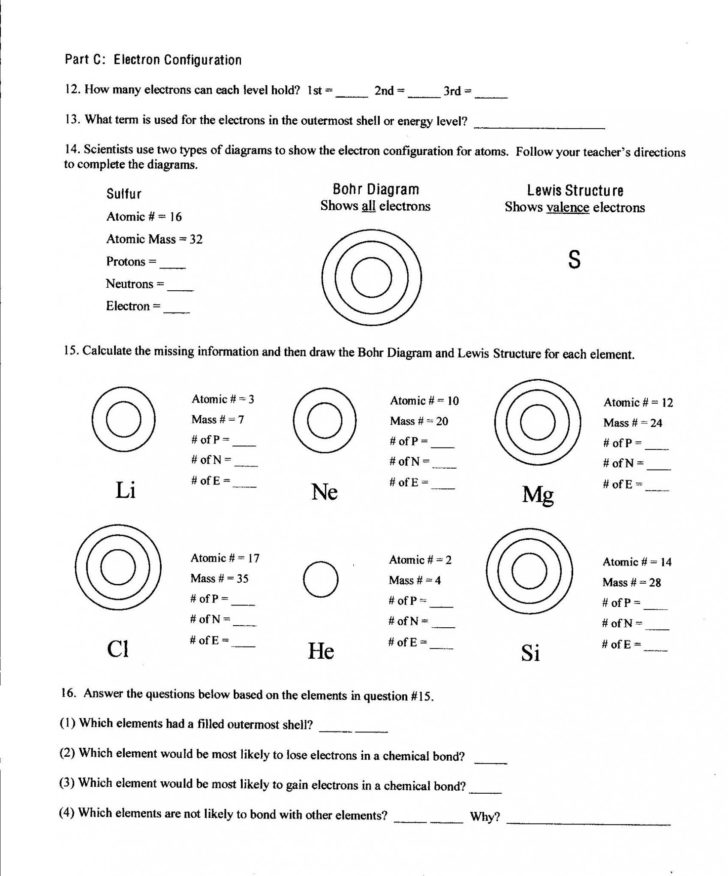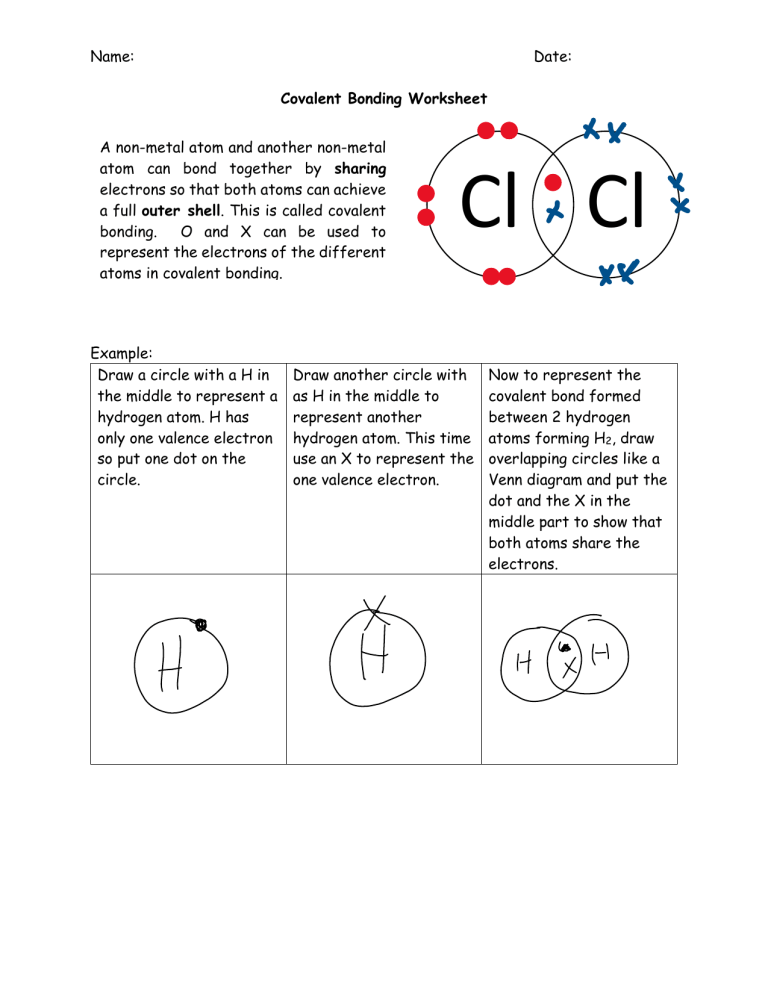Drawing Covalent Bonds Worksheet With Answers
Drawing Covalent Bonds Worksheet With Answers - Scaffolded, partially scaffolded and unscaffolded. Covalent bonds and molecular structure. Sharing 1 pair of electrons creates a singlecovalent bond, sharing 2 pairs of electrons creates a double covalentbond, and sharing 3 pairs of electrons creates a triple covalent bond. The simplest example of bonding is demonstrated by the h 2 molecule. How many covalent bonds does an oxygen atom typically form? Specifically, this product covers 3 skills: Web covalent bond, diatomic molecule, lewis diagram, molecule, noble gases, nonmetal, octet rule, shell, valence, valence electron (do these before using the gizmo.) there are eight markers in a full set, but flora and frank each only have seven markers. Web draw the lewis diagram for the covalent bonding in pcl 3. Pupils are then asked to practise drawing dot and cross diagrams. Describe the relationship between the length of a bond and the strength of that bond. Pupils are then asked to practise drawing dot and cross diagrams. Sharing 1 pair of electrons creates a singlecovalent bond, sharing 2 pairs of electrons creates a double covalentbond, and sharing 3 pairs of electrons creates a triple covalent bond. And (3) writing chemical for. There are three types of bonds: Scaffolded, partially scaffolded and unscaffolded. Web covalent bonds involvesharing pairs of electronsbetween two atoms so that each atom gainsa full outer valence shell. The ability to draw lewis dot structures is an important aspect of learning about covalent bonding and molecular geometry. Specifically, this product covers 3 skills: Web a chemical bond is formed when electrons are shared between two atoms. How are ionic bonds. In this worksheet, students will learn to write lewis dot structures for individual atoms, simple compounds, polyatomic ions, and resonance structures. Web chapters 6 and 7 practice worksheet: Lesson summary the octet rule in covalent bonding covalent compounds are most stable when each atom has eight electrons. The bonding worksheets cover the following topics: Covalent bonds and molecular structure. They'll need to keep their wits about them, however, because as tempting as it may be to put that all of these substances form covalent bonds, there are a couple of other options in there to keep them guessing! Ste h2 step 6 h20 (2) hydrogen. How many covalent bonds does a hydrogen atom typically form? Web this worksheet clearly. Tellurium atoms make covalent bonds. Circle the unpaired electrons that will be shared between the elements. Formation of h3o+ h 3 o +. Web chapters 6 and 7 practice worksheet: Identifying ionic, covalent and metallic bonds. Formation of h3o+ h 3 o +. The simplest example of bonding is demonstrated by the h 2 molecule. Hydrogen + hydrogen (diatomic element) write the symbols for each element. In section 8.6 you will use this lewis dot diagram to predict the three dimensional geometry of a molecule. Tellurium atoms make covalent bonds. Covalent bonds and molecular structure. Web covalent bonds involvesharing pairs of electronsbetween two atoms so that each atom gainsa full outer valence shell. Use one line for each pair of electrons that is shared. Web when drawing the lewis structure of a polyatomic ion, the charge of the ion is reflected in the number of total valence electrons in the. How many bonding electrons and nonbonding electrons are in the molecule? Web a chemical bond is formed when electrons are shared between two atoms. Web draw the lewis diagram for the covalent bonding in pcl 3. Hydrogen + hydrogen (diatomic element) write the symbols for each element. A triple bond is represented by three. Web draw the lewis diagram for the covalent bonding in pcl 3. The ability to draw lewis dot structures is an important aspect of learning about covalent bonding and molecular geometry. 1 n 1 n atom = 5 = 5 valence electrons. There are three types of bonds: Use one line for each pair of electrons that is shared. (1) drawing ionic bond diagrams; Hydrogen + hydrogen (diatomic element) write the symbols for each element. **how to draw simple covalent bond diagrams. Submit your choice when you are confident you have the correct answer. Web relates to covalent bonding. The bonding worksheets cover the following topics: Formation of nh+4 nh 4 + by the reaction between nh3 nh 3 and water (h+) ( h +) b. The ability to draw lewis dot structures is an important aspect of learning about covalent bonding and molecular geometry. Identifying ionic, covalent and metallic bonds. Formation of h3o+ h 3 o +. Web in a lewis structure, you draw a molecular structure that accounts for the valence electrons of all the participating atoms, showing the connectivity (bonds) as lines between atoms, and lone electrons as dots. Ste h2 step 6 h20 (2) hydrogen. And (3) writing chemical for. Tellurium atoms make covalent bonds. Web draw the lewis diagram for the covalent bonding in pcl 3. In this worksheet, students will learn to write lewis dot structures for individual atoms, simple compounds, polyatomic ions, and resonance structures. Covalent bonds and molecular structure. How are ionic bonds and covalent bonds different? The very detailed answer key has answers for every problem that includes each step in finding the solution, making it perfect for anyone new to. They'll need to keep their wits about them, however, because as tempting as it may be to put that all of these substances form covalent bonds, there are a couple of other options in there to keep them guessing! How many bonding electrons and nonbonding electrons are in the molecule?
Covalent Bonding Worksheet With Answers

Covalent Bonding Worksheet Answer Key

Worksheet Chemical Bonding Ionic And Covalent Answers Part 2 —

Drawing Covalent Bonds Worksheet

Drawing Covalent Bonds Worksheet With Answers

Ionic And Covalent Compounds Worksheet

Ionic And Covalent Bond Practice Worksheets Answers

Identifying Ionic And Covalent Bonds Worksheet Answer Key Printable

WS Drawing Covalent Bond Diagrams PDF Name Class Date DRAWING

Covalent bonding worksheet
Scaffolded, Partially Scaffolded And Unscaffolded.
Hydrogen + Hydrogen (Diatomic Element) Write The Symbols For Each Element.
How Many Covalent Bonds Does A Hydrogen Atom Typically Form?
(2) Drawing Covalent Bond Diagrams;
Related Post: